Do you know Lobotomy Software? If you played Exhumed / PowerSlave on Saturn or Playstation, you probably remember that it was a real masterpiece, a Metroid-alike adventure in first person view, before Metroid Prime even existed. Lobotomy were founded in 1993 and they released some other games like the successful Sega Saturn ports of Duke Nukem 3D and Quake, that shown to the world what the 32Bit Sega Console was able to do with 3D graphic when great developers were able to work on great games.
They were also planning 2 new original games, Aquaria (Nintendo 64 + Playstation) and Exhumed 2 (Playstation), but unfortunately these were cancelled before being completed and gamers will never be able to enjoy them. In 1998 Lobotomy’s talented developers were acquired by Crave Entertainment and the team was renamed to Lobotomy Studios, to work on a Caesar’s Palace game for the Nintendo 64, but after a year of development the game was postponed and eventually cancelled. As we can read on Wikipedia, at that point Lobotomy Studios was closed and employees were let go or given the option to be relocated to another position at Crave Entertainment.
Thanks to our friend Ross Sillifant we are able to publish this interview with Brian McNeeely, one of the main Lobotomy Software developers that worked on all their games, to ask him about his memories on their released projects and their cancelled titles. And if you still don’t know why it’s such a shame that we lost Exhumed 2 and Aquaria, please take your time and watch the video below (created by Tatsu from Lobotomy Software Blog), to understand why Lobotomy Software was one of the most talented development team in the mid ’90, affected by an unlucky fate.
Interview with Brian McNeely by Ross Sillifant
Before we get started, i’m going to try and ‘avoid’ as many technical-based questions as possible, or least phrase them in a more general manner, as i think these type of questions would be better suited to coders like Ezra Dreisbach, with your goodself i’m looking more for the insights into the company itself, hopefully being able to get a few rumours from the press cleared up etc etc.
Q1) Starting with the standard, cliched opener, Brian, please introduce yourself to our readers, in terms of your background, if you could be so kind.
Brian: Thanks for this opportunity Ross. My name is Brian McNeely (my name was actually Brian Anderson up to around 1996 when I changed my last name to McNeely, which is my birth name). I’ve been working in the gaming industry since January 1989, when I was hired at Nintendo of America as a Game Play Counselor. It’s hard to believe that was over 26 years ago! I look back at those days as a golden era both in the gaming world and in my career, and I feel very lucky that I was at Nintendo’s epicenter during that period. The NES, SNES, and Gameboy hardware and software were all the rage, and I had the privilege of playing those games full-time and helping gamers all over the world with game tips and “counseling.” It really was a ton of fun. I love what I do now and what I’ve done since then, but that was one of the best times of my life for sure.
When I look back at that experience I realize more and more how it was essentially an education in game design fundamentals. Over the course of several years I played hundreds of games while on the job, many of them to completion, and some of them multiple times. Simultaneously I was taking calls from people non-stop all day long, helping them with solutions, gaining new insight from them, and discussing games. As the years developed I reached a point where I had memorized a large amount of answers to nearly all questions that came through across the majority of available games. And it wasn’t that I was just memorizing answers, I was also absorbing knowledge and experience through many unique perspectives and sharing that information with others. There was also a competitive side to the job where Game Counselors pushed each other to find answers and finish games. It was a very unique job in that you had to be able to visualize, over the phone, where in a game the caller was and what they needed to progress based on a few key points of information they provided, and then piece everything together into a mental (and verbal) solution to the puzzle. The constant bombardment of calls was the tough part about that job, but helping people with a shared passion made up for it.
Through it all I was able to gain a lot of design insight into what makes a game fun, what frustrates the player (for better or worse), the importance of rewarding the player, pacing, difficulty, the relationships between art and game play and audio and technology, level design, progression, etc., etc… I could go on and on but I’ll stop by just saying it was awesome and I learned a lot.
Q2) I’d like to start the interview, proper as it were by asking about how Lobotomy in effect came to be. You’d been working under the security as it were, of Nintendo Of America, for some 4 years?, before deciding to ‘break out’ and go it alone. So, i wonder just what the reasons for setting up your own were (perhaps you’d always had vision of the games you wanted to make, yet knew you’d never be ‘allowed’ to make them at Nintendo?, so you needed the creative freedom perhaps?) and also, if it’s ok to discuss it, the sheer scope of stepping out into a very cut throat industry, setting up a new studio and having to prove yourselves. Could you talk us through the thought processes involved, risks you knew you were going to take and indeed the timing of starting the company?
It all started with Paul Lange, the founder of Lobotomy. It was his idea to break away from Nintendo and start a game development company. We had been working together as Game Play Counselors for a while before we each eventually moved into different departments of the company. After a couple of years there I started going to art school full time and working at Nintendo part time at nights, and I wasn’t entirely sure what my future held. I knew that somehow I wanted to combine my two passions (art and game design) into some sort of career in game development, but the process and the companies that did it were somewhat of a mystery to me at that point. This was before schools offered any kind of education specific to game development, and finding job openings at development companies was very rare.
So when Paul approached me at Nintendo with his idea to break out and start a new game development studio I was thrilled. He also recruited two other Nintendo friends, and I recruited a couple of my good friends from art school, and we all began preparing to actually do it. When Paul quit his job at Nintendo and began laying the groundwork for the company the reality of it all hit. Shortly after Paul left I also quit my job and our initial small group began working out of Paul’s apartment. We initially had to learn how to use the art tools available at the time (Deluxe Paint and Deluxe Animator), and so we worked together to figure out how to make digital art for games from the ground up. One of our first projects was a SNES boxing game demo similar to Punch Out but based on the career of Joe Louis, so it had a retro feel about it. Once we had that demo up and running in playable form we were ready to begin shopping it around.
Q3) Sticking with the above, once the company was ‘up and running’ how difficult was it, to become an established name or serious player in the industry?. How did a young, unknown to many i guess, company, like Lobotomy, go about ‘selling itself’ to the industry?. Did you take along tech demo’s or early versions of planned games and try a kind of ‘we are making THIS or can get hardware to do that… and feel it’d be ideally suited for your company to publish/or be suited to a conversion of.. your planning’…?. It’s something i’ve always been interested in learning more about, just what it took for fledgling companies to get a foot on the ladder as it were, with in the industry. Did your work for N.O.A hold you in good steed?
It was definitely difficult at first, but also exciting. We reached out to some of our contacts we had established while at Nintendo, and we hired an agent to help us find business. The first year or so was pretty tough, and honestly we were willing to do just about any type of game project to get the business moving. We tested games for various publishers to make ends meet, and we attended CES in Vegas and Chicago (this was well before E3 existed), and we met with various publishers to show them our SNES boxing demo. We also continued creating additional SNES demos to show more of what we could do, including a pinball game using a jetpack Pig as the ball called “Pigball” (using SNES Mode 7 for the playfield) and a side-scroller we called “Hippie Man” in which you controlled a hippie with flapping wide leg pants. The hippie man was actually me. I borrowed a pair of vintage wide leg pants from my girlfriend’s dad and we filmed me running on a treadmill from the side. Then I literally traced the frames over the video using tracing paper taped to a television, scanned the images into digital form, and cleaned up each frame pixel by pixel to create the main character animations. I really wish I still had the ROM of that demo.
We eventually landed our first contract with Crystal Dynamics to port a game called The Horde to SNES, which we finished, but sadly was never released. I don’t remember the exact details of how that played out, but I think by the time we finished the game Crystal Dynamics had decided there was no market interest in the game. A couple of other notable early projects that helped get us going were Microsoft Soccer and Magic School Bus Explores the Solar System, both for Windows 95. Obviously, neither of those were dream projects, but they helped pay the bills. Our ultimate goal was to start our own project, and to get closer to that we got our hands on the “Build” engine and started working on concepts for a first person shooter.

Q4) Ok, lets look at the games, Lobotomy 1st leapt to UK Gamers attention with Exhumed (Powerslave in USA)…and to many kinda put the Sega Saturn on the map, in terms of it being able to handle FPS (and in style). Are claims game was originally planned as a PC FPS, called ‘Ruins‘ true? and also you originally just planned to port the PC version to Saturn?. If so, what made you change your mind and turn the console versions into something of a FPS with more depth than your average FPS of that era?.
Yes it’s true the game began as a PC FPS called Ruins. Paul wanted to make something with an Egyptian theme, so we started developing the game using the Build engine for Apogee in tandem with three other games they were making using the same engine. The other three games were Shadow Warrior (ninja theme), Duke Nukem (sci-fi theme), and Blood (horror theme). Our Egyptian themed game rounded out the “theme spread” for this set I guess, or at least I think that’s what Apogee’s original vision was. Eventually the product changed hands on the publishing side and we continued development on 3 platforms: PC, Saturn, and PlayStation. Playmates Interactive published the U.S. versions (“Powerslave”), and BMG published the game in Europe (“Exhumed”) and Japan (“A.D. 1999: Pharaoh’s Revival”).
The PC version was well underway when we began planning the Saturn version. I don’t remember why we started with the Saturn version first over the PlayStation version, but it became our lead platform between the two consoles. At first is seemed reasonable that we would attempt to just port the game to the Saturn, but I realized we had a great opportunity to do something different with the console versions of the game that could break away from what was typically expected for first person shooters at the time. There wasn’t really a push at that time to cater first person shooters to console gamers, and for the most part the console FPS selection was very limited. I remember specifically there was a huge hole in that area on the Saturn, and I may be wrong about this but I’m pretty sure the only FPS available for Saturn when we began development was a game called Robotica, which I played in detail to see what we would be competing with. It became clear that if we struck in a certain way we could really run away with something great that hadn’t been done at all up to that point.
There were a few key areas where I saw lots of opportunity to expand the FPS genre on consoles. One of them was controls and mobility, and so we set out to speed up movement to feel more like a jog, and also allow the player to make soaring jumps. This allowed us to take a fresh approach with level design and factor in more dexterity and “3D FPS platforming” style of game play. Another area was the overall structure and progression of the game. I wanted to avoid a linear experience, and instead offer a feeling of exploration and accomplishment, so we designed the “artifact system” in which the player discovered artifact items to gain permanent new special abilities so that they could gain access to areas of the game previously impossible to reach. The world map was added to help reinforce the setting and game world and navigate the level structure. All of this was kind of a nod to Metroid and several other games, so it wasn’t a new concept by any means, but it was new to the FPS genre and seemed to fit well for console gamers.
Q5) Sticking with Exhumed, the Egyptian setting was fantastic!. I’ve always wondered if this was a deliberate ploy, ie the setting lended itself brilliantly to level/creature design, helped it stand head and shoulders above the more generic FPS crowd etc. Were you / members of the team into the whole Egyptian mythology i wonder?. Also how much research into the mythology aspect made it into the game?.
At the time there weren’t many games that utilized the Egyptian setting, and I’m pretty sure that was a motivator for Paul in his decision to go that route, and I don’t think there were any Egyptian themed FPS games at all so we knew it would make the game more unique. All of us thought it was a great idea, but none of us were experts in Egyptian mythology so we did as much research as we could to find ways to tie it into the game, but the tie-ins were very loose.
For the most part the mythology connections were built around the artifact system, and the abilities acquired with them. For example I knew I wanted a mask-like item that would give the player the ability to breathe underwater, but wasn’t’ sure what to call it. I researched Egyptian mythology and found “Sobek,” the God of the Nile. He had an alligator head and was referred to as a water-related deity. It sounded good to me, and the water connection was there, so the “Sobek Mask” was born.
It’s funny to look back at how simple all of it was though. The most important part was to make everything somewhat authentic. Although not incredibly deep, we implemented enough legitimate reasoning to make the Egyptian setting seem more believable.
On a side note we literally got into character to make a lot of the character assets for the game. All of the enemies and first-person weaponry art were digitized clay models and human actors and then touched up. To make the Mummy I dressed up in a mummy costume and we used a video camera to capture all of the frames using a makeshift set with a few desk lamps and a black felt backdrop. One of our artists (John Van Deusen) was Anubis, and all of the first person hands were mine which John touched up to look veiny and rugged.
Q6) Playstation Exhumed always seemed something of a ‘remix’ edition, rather than straight conversion, again i’ve always wondered if this a deliberate move on your part or.. did Sony themselves ask for any (specific) changes to be made to PS1 version and if so why?.
There were a few reasons for the differences between the PlayStation and Saturn versions. The PlayStation engine didn’t allow us to display quite as many polygons on screen, and so we had to redesign all of the levels to accommodate this limitation. Although the final PlayStation layouts were slightly more confined overall, they were also more refined and had better balance in my opinion. The process of revising the levels presented the chance to add more polish to the flow and pacing of the game.
Sony never asked to make the games significantly different though. They only asked for one thing: “Add one unique piece of content exclusive to the PlayStation version.” To satisfy this we changed the art of the spider enemies into scorpions, and that was it.
Q7) I’d like to ask of about your personal experiences working with both Sega and Sony. Reasons being that both suffered from some poor FPS conversions to their hardware (Saturn Doom / PS1: Hexen and Duke Nukem 3D) and i wonder if you were ever in demand from either and what conflicts that might of caused, IE could’nt do PS version of game until Sega version finished due to contractual obligations. Plus is it true Sega Of America originally turned down Powerslave (Exhumed)? if so, why?. Also Sega seemed unconcerned about things like censorship in games like Duke Nukem 3D, Nintendo by comparison censored the N64 version, did Sony ever ‘differ’ in attitudes to Sega i wonder?
I could be wrong about these answers because it was so long ago, but I’m pretty sure we had a contractual agreement with Sega for the exclusives of Quake and Duke Nukem, and so PlayStation versions weren’t an option. As for Sega of America turning down Powerslave, I honestly don’t remember if that happened or not. Regarding censorship, I didn’t get the chance to work with Sony in that area so I can’t say what their stance was as the time. Needless to say we were all glad the strippers made it into the Saturn version of Duke Nukem because that game was nothing without them.
Q8) Sticking with above, how did you find working with the European and American ‘arms’ of both Sega and Sony and did the ‘press reaction’ influence the feelings of either?.Over here the UK Press (Saturn specific in particular) seemed to love you guys, big previews, covers screaming about your conversions, interviews etc etc, did this give Lobotomy a certain degree of ‘clout’ as it were?.
We were thrilled with our popularity in the UK, but unfortunately things weren’t the same in America. I think the main reason for that was because Playmates and Sega of America just didn’t push the game here. They only published a limited number of Powerslave copies, and so no one really knew about it. Add to that the press coverage in America was nothing compared to Europe and as a result the game didn’t receive very much attention and exposure.
On the flip side though, the exposure we received in Europe was fantastic. That was a great time for us, and to see Exhumed being enjoyed by so many was incredibly rewarding.
Q9) I recently stumbled across an interview from the time, with Ezra talking about the Playstation version of Quake being finished, but sadly never released, despite being superior to the Saturn version, it seemed to be felt ‘unwanted’ as it were, game deemed too old hat and this had a killer blow on the company.This must have been a horrendous period for yourself and the team, can you talk us through how you came to be working on PS1 Quake (as we’d been reading in UK at the time 7 developers had tried, failed to get game running on PS1 etc etc, it simply was’nt going to happen).
Also any ideas as to why the FACT you had converted Quake to PS1 and just how fantastic a conversion it was, has gone so undiscovered for so long?. I’ve read interviews/features/articles on Quake in Gamestm, Retrogamer Magazine etc, yet no-one seemed aware of missing PS1 version, which is most odd. Plus is there ANY chance of source code being sat somewhere and if so, could it ever be released/preserved?
At this point I honestly don’t remember a lot of the details about our PlayStation Quake version. I do remember that it was a surprise, and I think Ezra just casually said that he had done it one day. It wasn’t that much of a surprise though because our engineers were awesome and so it was kind of expected that they routinely did the impossible. I do know that it didn’t have a negative effect on the company though, so I don’t know where that perception came from. I suppose the negative impact of not landing a contract for it was a factor, but it definitely was never seen as a killer blow of any sort.
Q10) Regarding Saturn Duke Nukem and Quake conversions… i’d of thought after Exhumed, you’d of been Sega’s 1st choice for getting the contracts to convert these 2, but claims suggest others had started at least one of these, but it was’nt very good. Without naming names :-) just how far along had earlier attempts gotten and how did it feel to be 2nd or 3rd choice? or were you, as a company, just bloody glad to have landed the contracts, period?.
The way I remember it is that a handful of developers were being considered and that it took the right person in the right position to recognize who would be the best fit for the job, and so we were chosen. We were definitely very happy to get the business, but it was bittersweet because we had hoped to be in a position where we could develop our own games without relying on ports to keep the business running.
Q11) I’d like to talk about a few other ‘Lost Games’, if i may: We know Lobotomy were a fantastic team and turned out simply stunning products, time and time again, so we were gutted to see ‘Aquaria’ get canned. Can you remember much about the game itself (it was often refered to as being similar to Saturn Nights, but set underwater) and just how far along development got and also what caused it to be cancelled?.
We had a playable demo of Aquaria up and running on PlayStation. It was a free roaming third person underwater adventure game where you controlled an alien merman character. The Nights comparison ties into how fluid the controls were. You could do various dolphin-like acrobatics to maneuver through the environment. In addition to the playable demo I had the majority of the design pretty much completed but when the company began to close its doors we had to stop development. At one point we were contacted by Sega to possibly make the next Ecco the Dolphin game and we sent them our Aquaria prototype, but that never panned out. If you’ve ever played Ecco the Dolphin Defender of the Future you can get a pretty good idea for how the core character controls and camera system for Aquaria were designed.
Q11b) Next up: ‘Mutant Chronicles: The Mortificator.’ This seemed to be a game that the fans of the series really wanted, i wonder if you can remember if the game would of been more action-orientated or more RPG based?
Although we never got past the very early stages of development, it was shaping up to be an action-oriented FPS. We showed a playable demo at E3 one year and it’s unfortunate we couldn’t finish the game because we were having a lot of fun with it.
Q12) The closure of Lobotomy was a crippling blow to so many of us here in Europe alone, it simply seemed unthinkable, you were THE premier console developer to many of us, the ‘Darlings’ of the UK Magazine world, what future projects were you looking at? (Exhumed 2 perhaps) and on what formats were they planned for? Dreamcast maybe?. On that note, could you detail ANY OTHER lost games you’ve been involved in, over the years? (any format).
We had started development on Exhumed 2 for PlayStation, which was going to be set in ancient Egyptian times and centered on the main character Horus. It was in third person perspective, entirely 3d, and we had a playable demo up and running, but again the timing was off and we had to stop development. Looking back I regret the decision to go with third person instead of first person, because we were moving too far away from what we were really good at, and I think we would have had more success if we had done a true FPS sequel. Other than that I don’t remember any other lost games that haven’t already been mentioned.
Q12b) Also, i ‘assist’ with Lost Games sites like Unseen64 and Games That Were’nt (GTW). These guys pour blood, sweat and tears into researching and preserving lost game material and i’m hounoured to give of my time to assist where i can and people like your goodself giving of your time is an utter godsend. Do you have any source material (images, design docs, video drawings etc), you feel happy to pass on, so they can be preserved on these sites? i ask as i recently interviewed Farran T (Jaguar Mindripper) who’d deleted all his Atari docs and the images were lost forever :-(
I’ve included some old sketches and art from some of our projects with this interview. Enjoy :)
Q13) Did Lobotomy find itself more at home to a particular target market? ie did European gamers perhhaps ‘get’ your games more than those in the USA? if so, what would you put differences down to? marketing support from publishers (ie did Sega Europe push your games harder than Sega USA), gamers tastes? press coverage? or all of the above?
I attribute the popularity differences to media exposure and available units. There was a distinct media buzz about Exhumed in Europe that didn’t exist in America, and they were the exact same game. Add to that the sheer number of printed copies available in Europe compared to the few thousand available in America, and you can see how the game’s success had a vastly different outcome in each territory.
Q14) I mentioned this already, but at the time, you were the ‘darlings’ of the PS1/Saturn press, lot of interviews etc, were you ever miss-quoted? i ask this as looking into lost games and being a once avid UK mag.reader, the amount of quotes that were altered to suit a writers viewpoint or simply incorrect or even made-up, are startling over the years and it still continues.Did you ever read something and think, hold on, i never said that!
I’m sure there are a lot of articles that I’ve never seen so I can’t say for sure, but all of the interviews I’ve read have been accurate from my perspective.
Q14) Finally, do you keep in contact with your old team mates?. What are you currently doing yourself? (any future plans) and any messages for your legions of fans out there? (for so many of us, Lobotomy are true legends).
I still keep in touch with a lot of my old team mates from Lobotomy (we call each other “The Lobotomites”). We share never-ending stories and jokes and memories from those crazy times. We used to refer to our office as a development fraternity. We were a group of talented and unique guys, working insane hours, shooting from the hip, determined to make something great. Those were some of the best times of my life.
I returned to Nintendo about 9 years ago to work in game development (Nintendo Software Technology to be specific). I work with one of my very good friends and Lobotomites Kevin Chung, whom I’ve known for 25 years. We reminisce about the Lobotomy days frequently, often leading to laughter-induced stomach pain.
I fired up Exhumed the other night on Saturn for the first time in about 15 years, and I thought “damn this game looks old!” And then I started playing it and thought “damn this was a pretty good game!” And then I kept dying and I thought “damn this was a pretty difficult game!” And then I wanted to keep playing. I suppose that was a taste of what it was like for someone playing the game for the first time in 1996, minus the looking old part. I’m just glad so many gamers stuck with it and kept playing, because it was almost unfairly difficult. It was definitely designed for the more hardcore gamers. Without question though it was a great experience to make the game and work with so many great people. And although Lobotomy didn’t make it in the long run, at least we had the chance to provide something special to gamers that we were proud of and that we would want to play ourselves.
Huge thanks to Brian for taking part in this interview. Many, Many thanks.
Ross Sillifant
What do you think about this unseen game? Give your vote!
Would you like to add more info, screens or videos to this page? Add a comment below!
- Quark (Quantic Dream) [Dreamcast – Cancelled] - 24-03-2024
- Fortris [PC/Playstation/Dreamcast – Cancelled] - 09-03-2024
- Gorkamorka [PC / Dreamcast – Cancelled] - 16-12-2023


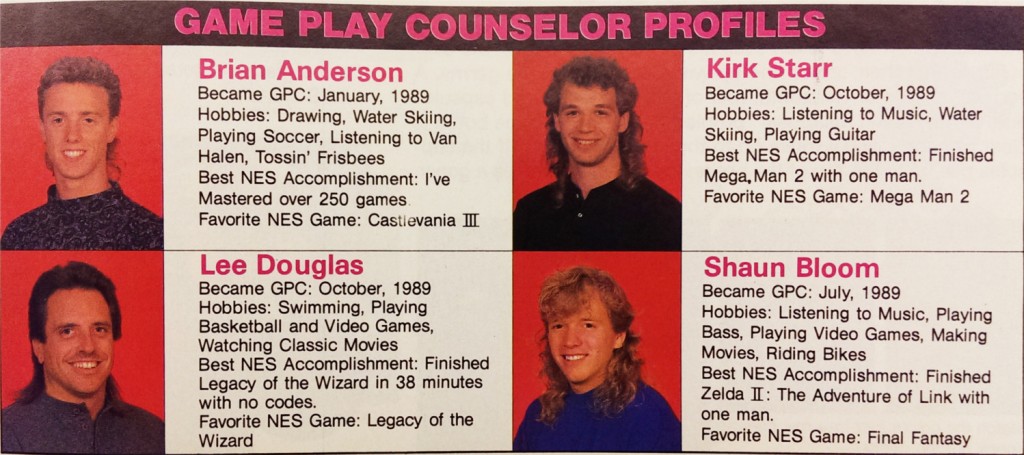
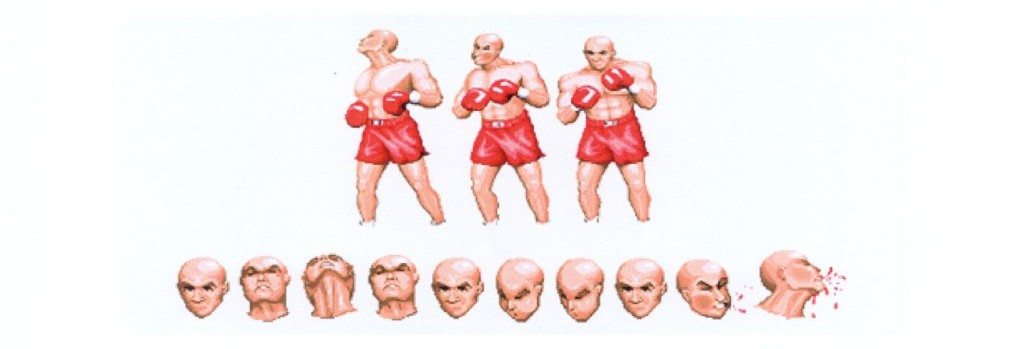
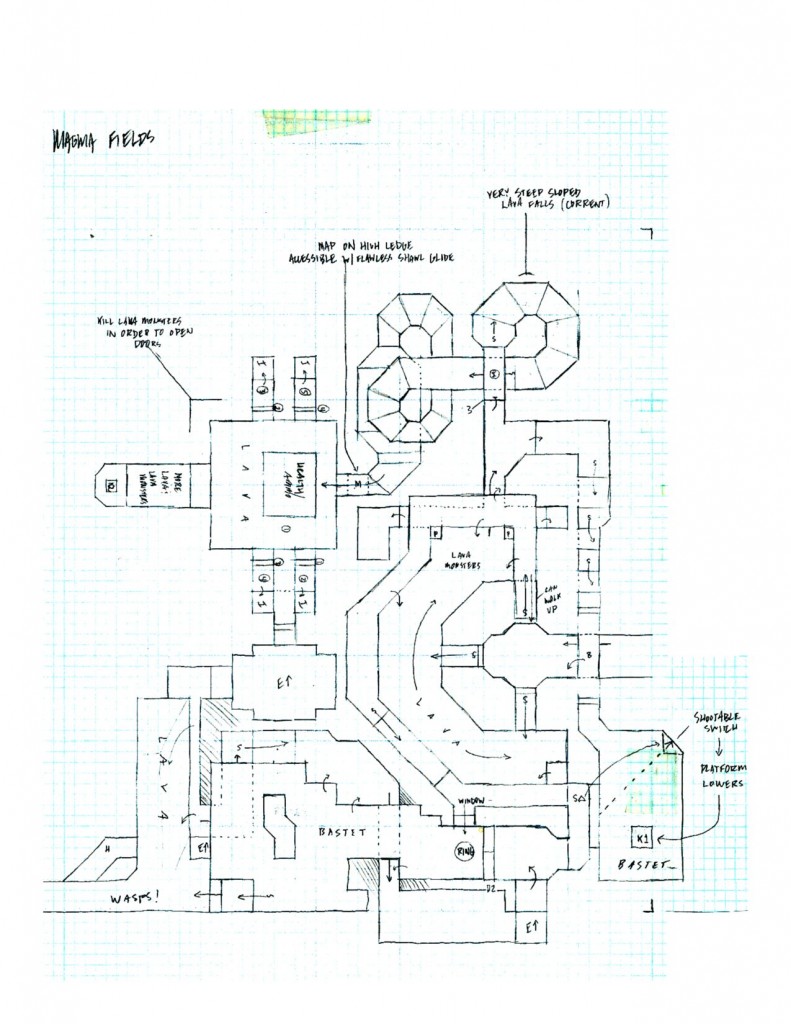
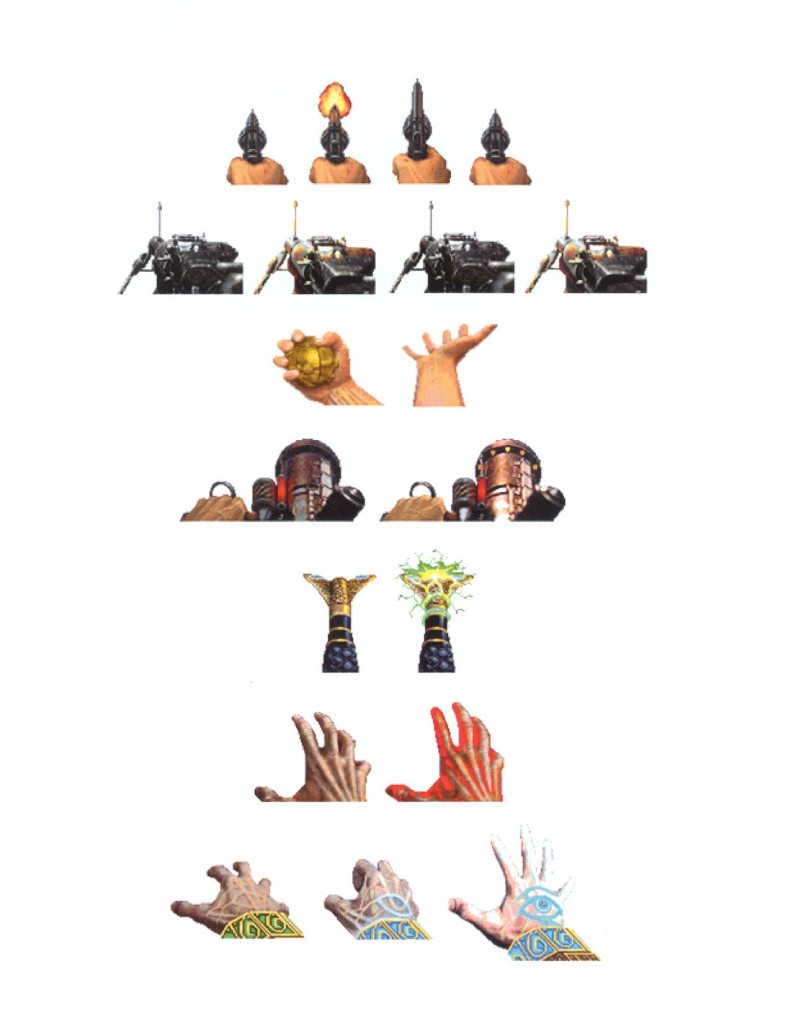
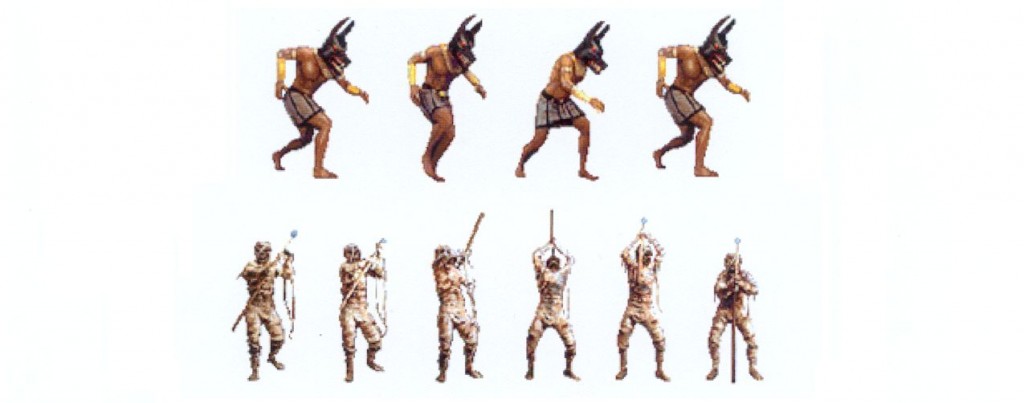
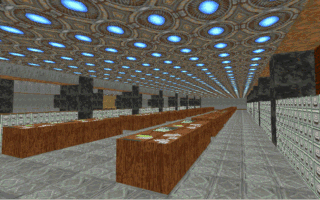
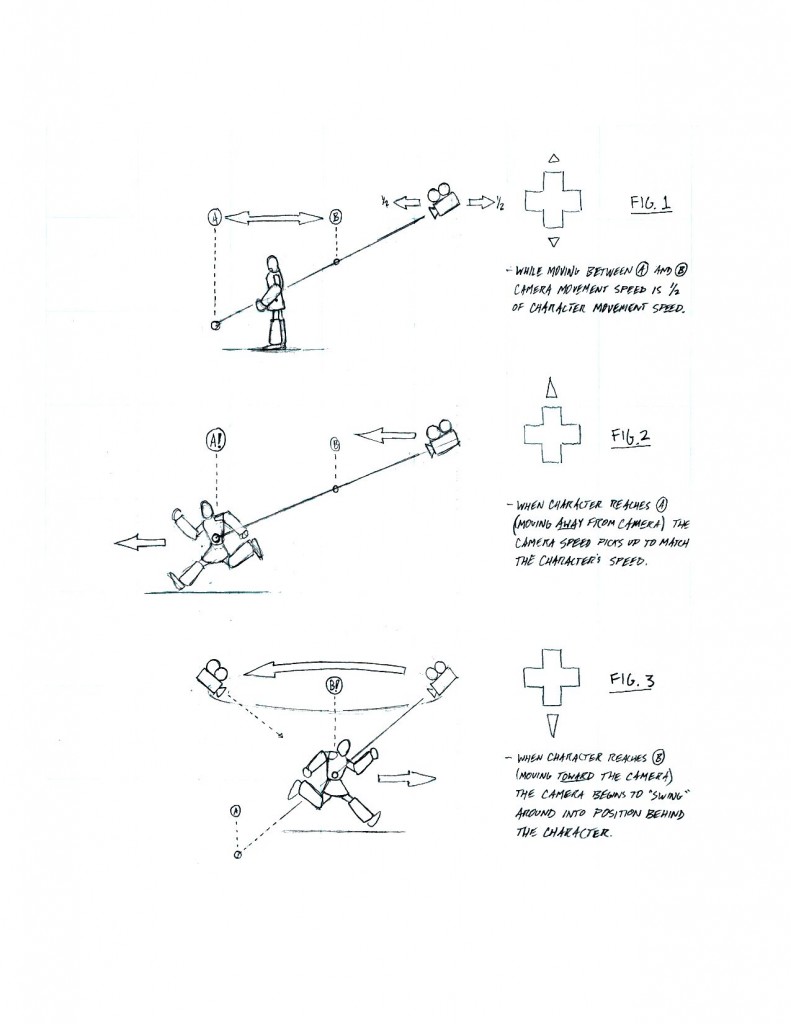
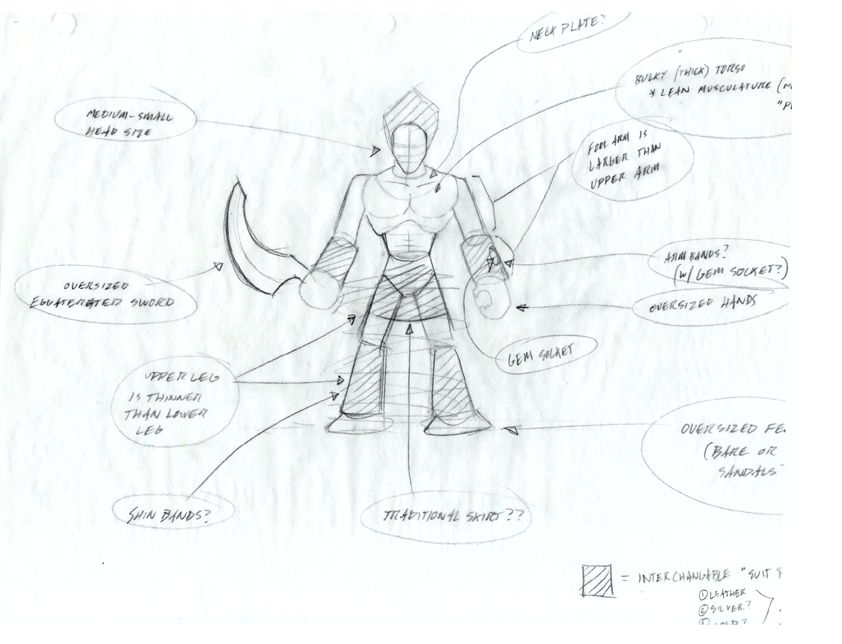

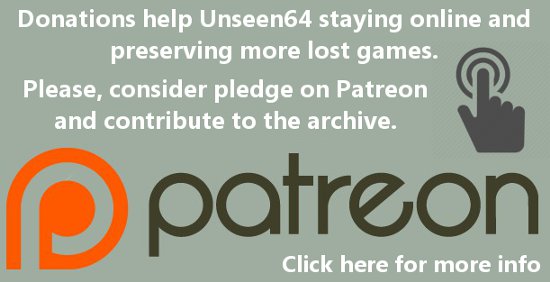
Thanks for the awesome heads-up Luca / monokoma. There’s so much info in here that I didn’t even know! Lobotomy was a great company and reading what Brian has to say makes me wonder what else they could have achieved given the necessary resources. We can only wonder! You’ve done them a great service I’m sure!
We really need to thank you Lee for the Lobotomy contacts that you shared with us and Ross for his awesome questions and his contact with Brian! This was a great team-work :)
Hi Lee,
Glad you liked the interview, it was a real pleasure to do it on behalf of Unseen64, and your kind words are most appreciated.
Yep, a superb joint effort.Lee for the contact details, monokoma for passing them on and Brian for responding in such detail.
So it was them that developed the cancelled The Horde for SNES, really interesting!
I have a screenshots laying around.
Didn’t know Aquaria was planned also for PS1.
Great interview.
I still hope that one day we could find some images from Aquaria, if there was a playable proto, someone could still have some screens from it :O
There seem to be many interviews with Ezra but it’s great to see an interview involving other members of the Lobotomy team.
What was a little uncomfortable for me though was how leading some of your questions were. Some of them border on being assertions rather than questions. It’s better to ask open questions and let the interviewee provide the answer they want to provide, rather than box them in so that there’s only one possible answer. For example:
“Sticking with Exhumed, the Egyptian setting was fantastic!. I’ve always wondered if this was a deliberate ploy, ie the setting lended [sic] itself brilliantly to level/creature design, helped it stand head and shoulders above the more generic FPS crowd etc. Were you / members of the team into the whole Egyptian mythology i wonder?
You’ve pretty much answered your own question here and there’s a danger of simply getting ‘yes’ and ‘yes’ as answers. An open question would be much shorter and more vague, and in the process is more likely to invoke a more verbose answer. Such as:
What were the reasons for basing the game on Egypt?
This way, sure he can say Egypt lent itself to level design if that’s what he thinks, or maybe the real reason was something completely different. Maybe his girlfriend was Egyptian? Maybe he had fond memories of visiting Egypt as a child? Maybe the publisher wanted a game based in Egypt? Who knows? But by asking an open question you’re inviting the interviewee to elaborate rather than just say ‘yes’ or ‘no’.
Also, try to keep the questions focused. Lots of them contain a large number of smaller questions that are completely unrelated, which can make the question a little overwhelming.
What role did you play in the creation of Lobotomy? How did you create the graphics for Exhumed? How many games did you complete while at Nintendo? What’s your favourite colour?
Try to keep the questions simple. Ask one at a time, and explore it further if the previous answer left room to do so. If you really need to ask multiple questions in one go, at least try to group them into relevant categories first so that the answers can flow rather than seem disjointed.
Other than the somewhat haphazard style though, I very much enjoyed the interview. It revealed a lot of previously-unknown information and was very interesting as a result. I’ve subscribed to your feed so I can read more. :)
Thanks for the feedback.
This was just one of many interviews i’ve done in my spare time for likes of GTW/Unseen64/ST Gamer/3DO Forum/Classic Console Magazine/Grumpy Old Gamers etc and i’d never consider myself a ‘professional’ and they are’nt done as paid for work or in professional publications, so they will differ to those you might find in likes of Edge/Retrogamer/Gamestm etc.
Regarding the possibilty of asking further questions based on answers given, sadly given sheer amount of time it takes just to carry out rough interviews such as these renders that impossible.Given the nature of the people involved who are working under immense pressures with deadlines etc, plus fact i myself work full time, and mixed shifts at that) you simply have 1 shot at doing the interview, so send questions when you can and just pray you’ll be able to get answers back.The interview questions are often simply done before a Night shift starts, so yep, they will be of a disjointed nature, but again, as they are being done in spare time, they are’nt going to get the planning you’d expect for a mainstream publication.
Think i can count the number of interviews i’ve had the luxury of fielding follow-up questions to, on the fingers of 1 hand.
With the Lobotomy interview you see here, 3 Ex-team memembers were approached, only the one responded.
I’m in process of wrapping up the interviews i had out, 4+ gone to ST gamer Vol 2, another couple to GTW for a project planned later in the year, few more to Classic Console Magazine, but no more planned, still chasing up 1 or 2 i’ve had out for over 6 months.
It took months to get insight/replys back regarding Jaguar Tomb Raider screenshots featured in Edge promo.supplement (fakes), info on what happened to Jaguar Conan (tech demo.only) etc etc
and again here questions just simply fired off over email.
All the interviews are really done on the basis of trying to find out what happened to…and why, put to rest a few false claims that have popped up online and in the press over the years and to provide content for websites/digital publications.
i’m not using them to try and get into jurnolism or anything like that.
The questions are just based on personal exp of a game and i always let people decide how they answer them, if they answer them at all.
I’ve been very fournate in fact majority have thanked me for the personal nature of the questions.
Only time i’ve had to re-do questions is when the ‘facts’ i’d been given by UK Press and online ‘experts’ turned out to be utter rubbish….for example contacted one coder who i was lead to believe was a Ninja with the Sega Saturn hardware, only to find out he’d never touched the hardware.You also get cases where people say they are happy to help, send questions over (so you do) and once they find out you’d like to ask about the 10+ games they hyped out, which never appeared, rather than hype the arse off their next Mega Project, you find they suddenly refuse to answer emails.
Also, going from personal exp.here, no matter how you word the questions, it always boils down to the amount of time the person at the other end has to answer the questions, that’ll dictate the answers, some are able to go into depth, others not so much.
Plus, lets not forget 1 key point, i’m asking questions about games people often worked on 20+ years ago in many cases, so often you’ll get a response like: ‘It’s so long ago i simply cannot remember’ or ‘Sorry, my mind is a blank, it’s been so long since…’
I’ve had to call off a good few interviews due to factor of time, people were happy to chat, but were honest enough to say there was no point asking about X, Y or Z as they simply could’nt remember and thus your list of 10+ questions was now reduced to 3 or 4.
:-)
The other point i’d raise is simply this:
Once the interviews are ‘up’ you never know quite what to expect from reader reaction….
Some people don’t take well to people giving honnest and open answers regarding games/hardware they worked on, if it shatters an established myth, ie going off recent example, that I.D loved the Atari Jaguar Hardware….
I interviewed Dave Taylor (Ex-I.D who worked on Jaguar Doom+Wolfenstien 3D and he was most scathing about the hardware) as was John Romero when i asked him a few simple questions….
Similar when i shared info from Ex-Bullfrog coder Mike Diskett regarding his attempt to convert Magic Carpet to the Jaguar, when he said hardware simply was’nt up to it, i was basically accussed of making the info up, had to get Mike to join the forum in question and answer claims direct.
When i started sharing info found on Jaguar CD Creature Shock, i was told the people had’nt said things as i’d printed them, so had to get another 2 coders versions of events to confirm what the previous 3 people had said :-)
It’d gotten to the point of absurdity and hence why i no longer invest the time i once did in tracking down and putting questions to..various coders over Lost Games.It’s not like i’m pitching Making Of…articles for mainstream publications, lol.
With the saturn coders, i simply try to weaken this myth the machine was underpowered and with the Lobotomy interview here, it really was as simple as getting the facts behind PS1 Quake, as being a PS1 owner at the time, UK press was full of stories about 7 developers trying and failing to port Quake to PS1.It was just nice to get confirmation that it was done, but simple casde of market had moved on, Quake 2 seen as the more viable option.
Thanks for your efforts Ross. I read this interview with much interest, and there are some great nuggets of info in there…I really didn’t know that much about Lobotomy. It is too bad your question about censorship didn’t yield a more in depth answer, I would have loved to know why there are so fewer exposed boobs in Exhumed\Powerslave compared with in the early screen shots of Ruins : ) Anyway, thanks again for taking the time to do the leg work to provide us beta loonies with more insight into these things, I guess it can be a thankless job sometimes
:-) Hi Akkroid…
Your feedback is most welcome.
Hope my 2 earlier replies to ‘John’ were’nt OTT, it was just myself attempting to explain the journey as it were with these interviews and that i’m just someone with a desire more than any real ‘talent’, well i was….
Way i’ve always looked at these is basically:Nothing ventured, nothing gained.You never know if your even going to get a response when you do your inital approach, so many emails simply went unanswered, others person no longer used contact addy, or simply just did’nt want to talk about old projects or would of loved too, but had forgotten so much about them due to number of years gone by.
The hardest parts were really knowing just what to ask, as your not doing them face-to-face, it’s rather souless at times and that’s why it’s been fantastic to be thanked for the personal nature of the questions, by those i put them to, in so many cases.Majority of readers (once they got past my poor grammar and scatter shot approaches) seemed more than happy with what was asked and replies given.
Often as they were in same proverbial boat as i was-just sat there thinking, ok, why has no-one in the main stream press ever chatted too….or when they did interview them, why did’nt they ask about Lost games like…?
So, i set out to see what could be found out and share the info for FREE when it came to light.
Sometimes Studio heads simply refuse to talk about Canned Games and it’s either brushed off or made clear that if your looking for answers? interview is terminated, however they will happily hype up future releases, talk about the hits.
You just learn as you go along.
Lobotomy were up there with likes of:Core Design, Rebellion, Cinemaware, Gremlin, Domark, Argonaut, etc etc as teams i really wanted to chat to as many people as possible, either via community interviews a la RVG or by solo efforts on my own back.
The insights that have been given have been fantastic and helped piece together the overal jigsaw of how platforms like the saturn, Jaguar, Lynx etc were viewed and supported and what happened to projects promised, but sadly never made it.
Of course there’s always more to be found, more people you’d love to speak to, more depth you’d like to see, but i’m just eternally thankful to those who have given freely of their time.
There’s more to come from myself, as been bombarding Unseen 64 with snippets for the book, more questions out, again just case of waiting for replies to come back in.
GTW have a certain feature planned, exlusive interview banked already, plus coder comments, questions sat with another source, another potential key interview hopefully on the cards in a few months.
ST gamer Vol 2 has 3 full interviews banked/written up, a 4th mini-interview forwarded, plus comments from a 5th source on his time in the industry, but yesterday i heard back from a 6th source and really struggled to put inspiring questions to him, i simply felt that burnt out, so just said rather than ask rigid questions, talk us through following subjects in your own words if you don’t mind.
So i know it’s time to exit.
It often is a thankless task as you say look into someone claim of speaking to coder X about game Y and your led to believe he said yes he worked on it and you’d simply like more info, only to find not only did that said conversation never take place, Coder X never touched Platform A, let alone start on Game Y…so your like, Ahhhh, ok, well that’s cleared that myth up.
You share info, so others are’nt given false hope of code somehow turning up one day and your personally attacked online elsewhere.
Or info you find from source/sources where coders say they hated working on Platform B as hardware was a mess, projects were pulled left, right and center because hardware could’nt even hope to cope with it, your told your making it up (so coders themselves join to give their views) or people say coders are simply bitter etc..it’s all rather odd.
Also, if you find yourself doing interviews as it’s now expected, rather than you yourself want to do it, you have to take a step back and say, ok, this is crazy and cancel interviews as your not really being honest with yourself, person your putting questions too or the very reader.
I let the sites/digital publications etc i submit work too, clean up my interviews, which are very raw, so the flak over the grammar etc is water off a ducks back, it just gets tiresome as i buy many books, magazines etc and see school boy errors, grammar, spelling as bad as mine, incorrect quotes etc etc and know writers were paid good money and your simply not ‘allowed’ it seems to post feedback on something you’ve paid for :-)
Hence why i’ve taken time to try and respond openly to feedback on the stuff i knocked up in the space of a few hours before shifts over a few days with interviews like this one.
Just vey happy to find people enjoyed it.
Exhumed and Lobotomy is a sad tale of how creative genius is killed by the gaming industry.
I’m no programmer, but I know great game craft when I see it.
I just hope anyone from Lobotomy sees this when I say THANK YOU!!!
I lost myself in Saturn Exhumed.
It was more like a ‘virtual reality’ escape for me.
Death Tank could easily be gaming sensation even now. Perhaps that’s what we could do?
Duke Nukem and Quake on Saturn was nothing short of wizardry.
I was a teenager during the Saturn vs PlayStation era.
Like many of today’s gamers, I was a foaming fanboy, ready to defend my console to my dying breath.
But after seeing what happened with Tomb Raider from Saturn to PlayStation.
My PlayStation fans were surprised when I agreed the PS version of Lobotomy games would be better.
I think I helped shift a few copies of Exhumed too, lol.
I wanted Lobotomy’s visions to be more successful.
Then we might see more games like them.
It doesn’t take as much now to find why fate was so cruel to the hard working masters of Lobotomy.
Sadly because of many people can see what it takes to make successful games nowadays.
Daring, originality is a very rare thing.
Once again Lobotomy, THANK YOU!!!
Great article. I Loved Exhumed on my Saturn back in the day, and Playing PowerSlave EX on PC now (don’t tell anyone though) . I wanted to find out more about the devs and came across this article. Very Interesting.
I was amazed at the fluidity of the original engine on the Saturn, and it’s lighting effects, but never got round to finishing it because i it was too darn hard for me (without a guide). The sound and music deserves a commendation too. Now I’m playing through it and it’s still incredibly enjoyable game. A classic to me. If only I had GameFaqs back then?
Powerslave 2 please! (I’d prefer “Exhumed” though, i’m British)
There are some people that are trying to understand how to acquire the Exhumed / Powerslave IP to creare a HD remake, if they could be able to do it maybe in the future we could also see a sequel :O
No source, no rumor please….it’s frustrating!
There is no rumor, it’s a fact :) some people are trying to acquire the IP, the problem is that, as far as i know, it’s not easy to find out who owns it and how to acquire it legally, so it’s not currently know if they will ever succeed.
I would like to reach a few other people from lobotomy, as the more i read, the more appalling it is to hear publishers ignored what they had in the works.
I’d also love to know if the claims of Playstation Exhumed was rushed out…
Also if I.D refused to grant Lobotomy the licence for Playstation Doom…
I’ve updated Exhumed II entry the best i can…
I have a couple of images that are from the artwork development of Mutant Chronicles: The Mortificator. It is a couple of screenshots from an article previewing the game
Very very very well done. I appreciate the hard work that was put into this video and the interview.
This IP would be a crown jewel for anyone, myself included, to obtain and reignite the franchise’s journey.